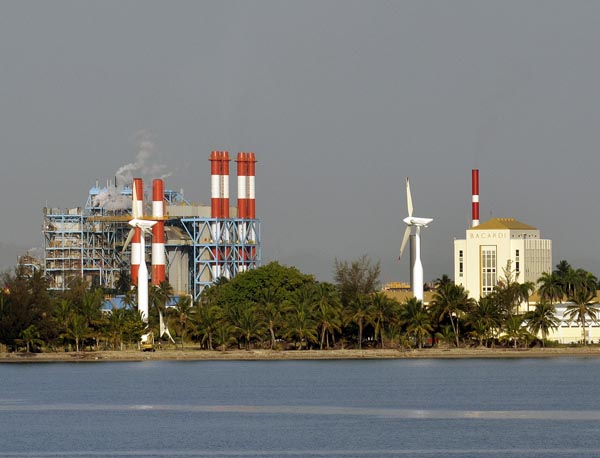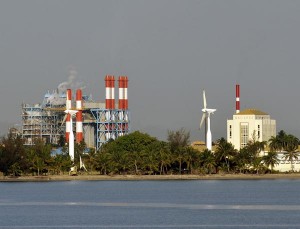Studies: PREPA’s proposed rate hike is economy killer


The demand for electricity from PREPA would decrease by 0.83 percent and proposed changes in the tariff structure would slow the development of affordable renewable energy in Puerto Rico. (Credit: © Mauricio Pascual)
The rate hike that the Puerto Rico Electric Power Authority and its bondholders are proposing would further erode the island’s economy and set back its recovery, members of the island’s private sector claimed Monday.
The “unsustainable increase” in the electricity rate shows PREPA’s inability to transform itself, they also said.
At a press conference held at the Puerto Rico Energy Commission (PREC), where PREPA’s proposal is being scrutinized in public hearings, members of the Puerto Rico Institute for Economic Competitiveness and Sustainability (ICSE-PR) said approving the 22.1 cents/kWh rate for 2017 would cause a real initial reduction of 1.05 percent in the Gross National Product.
This reduction is in addition to the decrease of the 2.0 percent drop forecast for real GDP in fiscal 2016-2017, an increase in the real rate of unemployment in August 2016, from 12.1 percent to 13.1 percent, and a Consumer Price Index increase of 1.32 percent.
In addition, the demand for electricity would decrease by 0.83 percent and proposed changes in the tariff structure would slow the development of affordable renewable energy in Puerto Rico, the group said.
Tom Sanzillo and Kathy Kunkle, expert consultants in rate proceedings from the Institute for Energy Economics and Financial Analysis, have actively participated in the PREC’s technical hearings on behalf of the ICSE-PR.
On Monday, they stressed that the proposed rate hike “will certainly be detrimental to the economic recovery that the island needs.”
Moreover it is not justified by a debt sustainability economic study saying PREPA would be affected by a decrease in electricity demand that rate hike would unleash, they said.
“There is no way that we can begin a process of economic recovery with an unsustainable increase in power rates as the basis for this process,” the economists said.
PREPA’s proposed 22.1 cent/kWh rate is an “excessively high” cost when compared with other jurisdictions in the United States mainland and competing island nations such as Ireland, Singapore and the Dominican Republic.
Thomas Torres, coordinator for the ICSE-PR, said the increase would result in high production costs, an increase in the cost of living, along with a decline in economic growth and increased unemployment.
This would be critical for all sectors including fiscal sustainability of a properly transformed PREPA, said Torres.
“The proposed PREPA rate increase did not include studies or analyzes that support the assumption that consumers within different sectors of the island [residential, commercial and industrial] could pay the proposed rates,” the executives said, adding the public corporation is not prepared to justify it to the Financial Oversight Board and statutes under the Puerto Rico Oversight, Management and Economic Recovery Act (PROMESA.)
The law’s jurisdiction includes overseeing the PREC on PREPA-related issues, including the consequences of a rate hike and other Commonwealth fiscal matters.
Rodrigo Masses, president of the Puerto Rico Manufacturers Association, said PREPA’s current legal framework requires a restructuring that must be evaluated under PROMESA parameters as well as the PREC. The private-sector representative also said there are grounds to question PREPA’s ability to transform itself.














